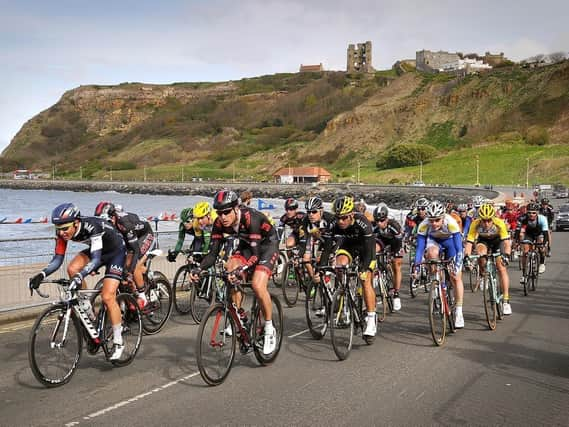Were we taken for a ride over Tour de Yorkshire? – David Behrens


That is not to say it was a mistake ever to have staged it. But to have persevered with it in the current climate would have mired it in a level of controversy it could not have survived.
It’s not a question of whether you like cycling or not; whether you’d have lined the streets next spring to see the caravan of colour go past, or watched the aerial coverage on TV – the truth is that when you stripped away the spectacle, the numbers did not add up.
Advertisement
Hide AdAdvertisement
Hide AdThey may never have added up in the first place but we failed to notice, because the former management of Welcome to Yorkshire sold it to us as a unique community event and a shop window for our county. It was indeed, but it was also a hard commercial proposition. We paid a profitable international company to literally parade its product through our streets.


That was fine if most of the costs were being met by commercial sponsorship, but not if they were being taken out of the public purse. Shoring up the funds of a giant media corporation with money that might otherwise have gone on education or transport would have been a non-starter in the first place, had it been presented to us in those terms.
The company in question is Amaury Sport Organisation, part of the French publishing group named after its late founder, the tycoon Philippe Amaury. It operates the Tour de France and a raft of other events and in 2015, when the Tour de Yorkshire was inaugurated, it made a profit of €47m.
Advertisement
Hide AdAdvertisement
Hide AdAnd profits, not philanthropy, are its raison d’etre – as the Tour de France director Christian Prudhomme more or less acknowledged in May, when he complained that it lost money on all the women’s races it ran.
Monsieur Prudhomme was a frequent visitor to these shores during the Tour de Yorkshire years. His host was Sir Gary Verity, the disgraced former grand fromage of the tourism sector whose choreographed bonhomie served as a smokescreen for any inconvenient questions that may have cropped up about the financial arrangements.
The fact that they did not was down to Verity’s genius for controlling the agenda. More fond of his own figures than those on the balance sheet, he commissioned a financial analysis which calculated that the 2018 race had added £98m to the economy – but he fudged the fact that it factored in cash spent on hotels, which would have been full anyway during a bank holiday.
In fact, as acknowledged by the new Welcome to Yorkshire chief executive James Mason, the event never attracted the level of sponsorship it needed and had become a financial drain. Indeed, after Verity’s departure, his successors had to borrow £500,000 from North Yorkshire County Council in order to pay his remaining staff.
Advertisement
Hide AdAdvertisement
Hide AdYet the race itself was by any measure a genuine spectacle. Where else could you see some of the world’s best sportsmen and apparently unprofitable sportswomen compete for free? A weekend pass for the British Grand Prix at Silverstone, at which the racers also flash past in a second, would have set you back £220.
But by the last running in 2019, there was a sense that the novelty had worn off. There was more to visiting Yorkshire than watching a cycle race, and its other attractions were spread over the whole year, not just a single weekend. Welcome to Yorkshire’s new “Walkshire” initiative, for instance, is a far more imaginative and cost-effective use of the region’s natural resources.
Besides, with Verity gone, the financial position could no longer be disguised. Nor could ASO’s commercial interest. It would have been one thing for it to want to cover its costs; quite another to insist on making a profit, and on having its margin guaranteed up front. Its demands on the county’s taxpayers were not only risk averse but almost without precedent. In what other circumstances would a British council underwrite the profits of a foreign company? Certainly there would have to be a more tangible public benefit than a weekend of cycle racing.
Advertisement
Hide AdAdvertisement
Hide AdSo it was inevitable that a spoke be put in the wheel. But when the dust settles and we judge the legacy of a memorable but ultimately divisive chapter in our cultural life, will we emerge as a county of bike lovers – or discover that we were taken for a ride?
Support The Yorkshire Post and become a subscriber today. Your subscription will help us to continue to bring quality news to the people of Yorkshire. In return, you’ll see fewer ads on site, get free access to our app and receive exclusive members-only offers. Click here to subscribe.
Comment Guidelines
National World encourages reader discussion on our stories. User feedback, insights and back-and-forth exchanges add a rich layer of context to reporting. Please review our Community Guidelines before commenting.